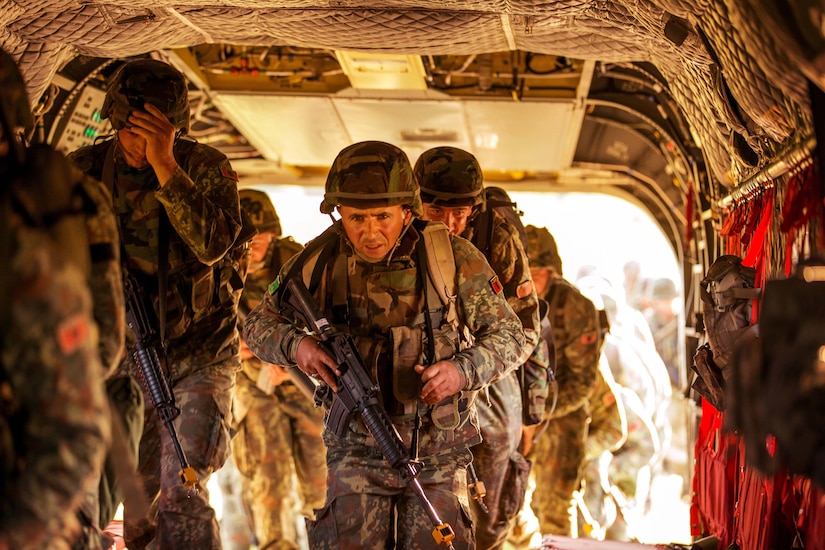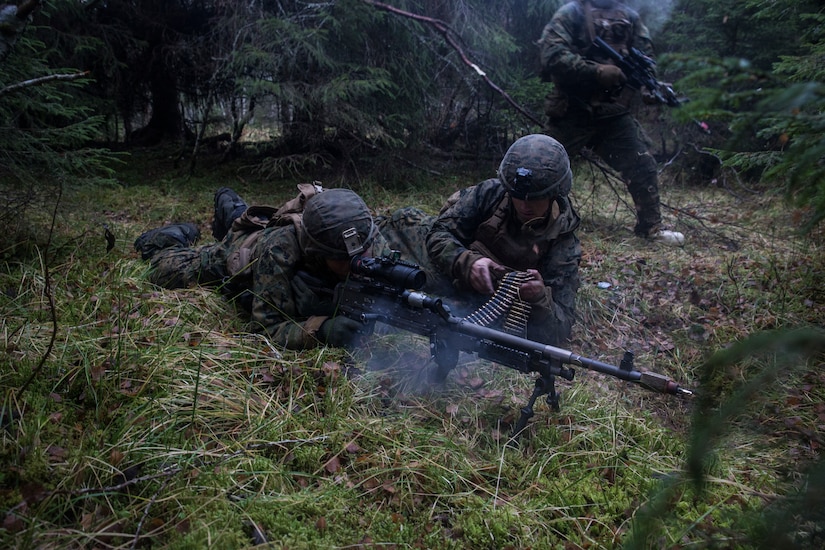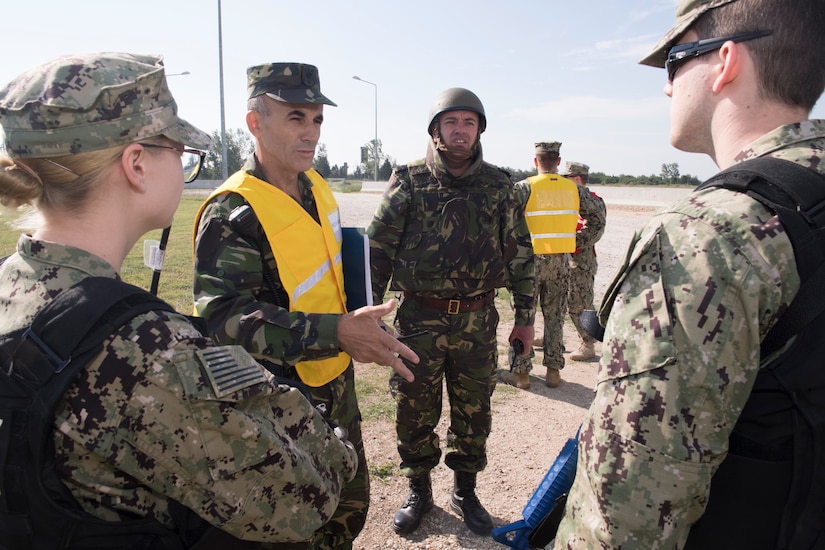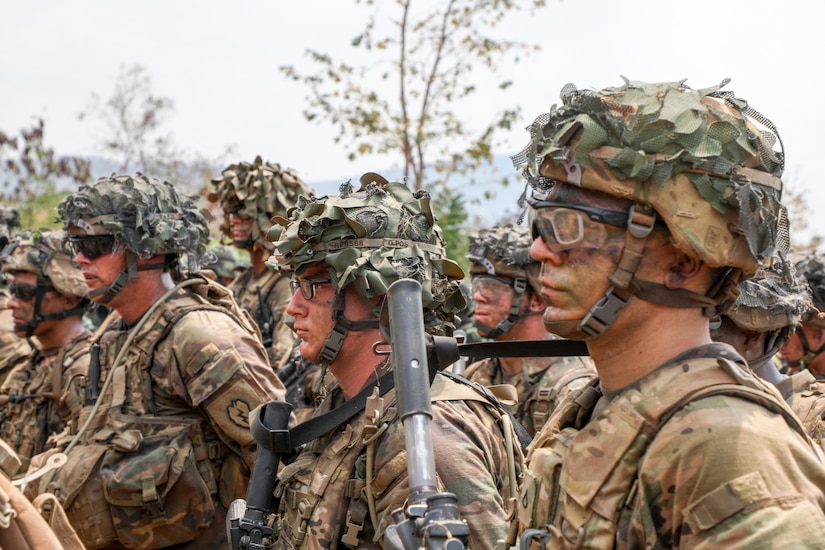Sept. 10, 2020 | , DOD News
While it's true the Defense Security Cooperation Agency is most-closely associated with foreign military sales, that is not all they do. When it comes to working with security partners, there's an effort now to focus on multi-domain operations to improve teamwork in regards to air operations, Heidi H. Grant, DSCA's new director said.
"To effectively build a partnership and team in air operations, we work with our allies to bring them into a multi-domain environment," Grant said, during a conversation at the Defense News Conference today. "In this era of renewed great power competition, our adversaries will not be operating in singular land, air or sea domains. They will be operating in multi-domain environments to include cyber and space."

Operationalizing a multi-domain approach, she said, allows for more effective air-power teaming, for instance.
"One of the challenges is to get our partners to look beyond what I call the 'bright and shiny aircraft' to the added necessity to connect and develop a net-centric capability, which will ... make it more effective," she said.
To further push the multi-domain approach, Grant said the DSCA team works actively with geographic combatant commands, military departments and the U.S. defense industry to ensure defense sales are more holistic. She also said the agency monitors international competitions to create further opportunities to expand the use of U.S. platforms with allies and partners.
"Currently, we're monitoring 48 international competitions with 24 partners," she said. "Of those, 70% are air-power based and primarily rotary wing and fighter jets."
Grant also said that DSCA is working to ensure that the exportability of U.S. capabilities is built-in to both programs of record and non-programs of record so that defense partners can have access to the capabilities they need more quickly.

"We're doing our best to lean forward with new emerging technologies to ensure we have a determination on release in advance of actual system deployment by the U.S. military forces," she said.
While it makes sense that U.S.-developed capabilities would be fielded to the U.S. military first, she said partners have said that more could be done earlier in consideration that they also might want access to those capabilities.
"I think this has been one of the complaints of FMS ... we think about the U.S. first, and we don't think about our allies and partners in advance," she said.
Now, she said, there's significant effort across the U.S. government and within industry to consider the exportability of U.S. military hardware early on in its development so that it will be easier to share that technology with partners. That way, partners will consider U.S. technology first — and the compatibility that comes with it — rather than looking elsewhere.
"I think it's ... important to recognize the market is becoming increasingly competitive overall," she said. "Allies and partners don't want to wait to procure the most advanced technology."
New Director
Grant has been on board as director of the DSCA, an agency with a civilian and military workforce of about 20,000 personnel, for just over four weeks now.
As the new director, she said she plans on implementing a "partner culture" within the agency to better serve stakeholders.
"This is something that's been important to me in the last couple of ... leadership roles that I've held, this 'partner culture,' and it fits very nicely here in the organization. It's what I value," she said, during an earlier telephonic conference Sept. 9.

Grant used the word "partner" as a mnemonic device to spell out the priorities she thinks will enhance the partner culture she hopes will grow within DSCA.
"I want the agency to be proactive, in how we do business — proactive in identifying what our stakeholders need so that we can develop policies and plans to ensure they're successful," she said.
The DSCA will also remain accountable to stakeholders, including Congress, she said.
"I can tell you my predecessors have done a tremendous job in reforming our processes to streamline how we do business. And I want to build on that success and will hold the organization accountable for achieving the tangible results," Grant said.

Agency work will also be conducted with respect, she said. With a diverse array of stakeholders, including the defense industry, foreign partners and agencies within the U.S. government, there are bound to be disagreements on how to proceed with agency work.
"What we'll do is navigate our work, leading a diverse stakeholder group, with respect for each other's organizations, equities and responsibilities," she said. "I really believe in order to make progress, we really need to roll up our sleeves and understand each other."
As with nearly every government agency, transparency is also a key facet of Grant's partner culture, she said.
"I want to make sure our stakeholders understand the context associated with process improvement, policy development or funds management and have the opportunity to contribute and provide feedback," she said.
The National Defense Strategy has called for building new partnerships and alliances and strengthening existing ones — DSCA is a key part of that. But as the Defense Department and the DSCA make greater pushes into areas like space and cyber, Grant said, the DSCA itself will need to grow its network of stakeholders — that's the 'n' in partner — to be successful.

"The importance of this mission has grown, and it will only continue to grow and expand into new mission areas," she said. "As the opportunities increase, we'll continue to build our network of stakeholders who will contribute to our success."
Grant also said that there's significant talent within the 20,000 personnel inside DSCA, and that agency success will require empowering those individuals to work closely with foreign governments and industry counterparts to advance agency efforts.
Finally, she said, DSCA's work must always represent the values of the United States and its people.








No comments:
Post a Comment